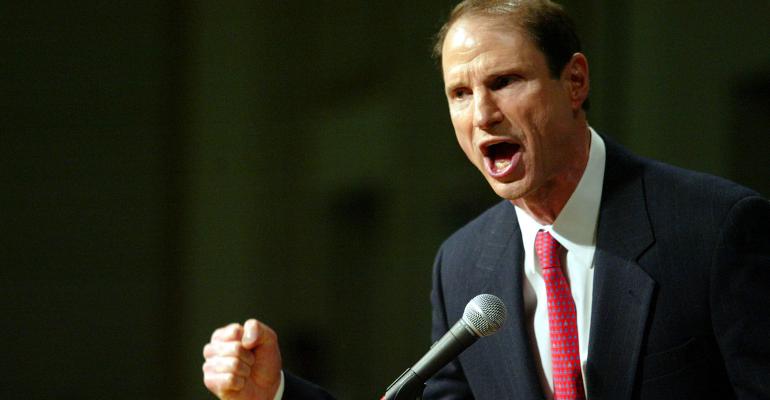With a country divided on everything from COVID-19 vaccines to taxes, the recent public dispute between Sen. Ron Wyden (D-Ore.) and his own son, Adam Wyden, highlights just how difficult it is to change the way we tax the rich. The public rift between the two was documented in detail in a New York Times article last week, in which the author points out that the “merely” rich are playing defense for taxing the “fabulously” rich.
What Transpired
As most of us already know, Senator Wyden is a big proponent of taxing the rich, unveiling an updated version of his Billionaires Tax Plan earlier this fall, the logic of which is to eliminate the tax code loopholes that allow these ultra-wealthy individuals to defer paying taxes indefinitely. The plan was predictably met with its fair share of criticism, including from various billionaires themselves such as Elon Musk. Least expected was a tweet from the younger Wyden, defending Musk and questioning his father, “Why does he hate us / the American dream so much?!?!?!?!”
The New York Times article points out that while Adam Wyden, owner of ADW Capital Partners, a hedge fund with $330 million in assets, would be subject to higher taxes under his father’s tax proposals, he’s not the prime target of the legislature and wouldn’t be hit with the wealth tax, targeted at those with $1 billion in assets or $100 million or more in income over three consecutive years. So why then are wealthy individuals, and not merely the targeted ultra-rich billionaires, so opposed to these tax proposals?
Why the Rich Play Defense for the Ultrarich
One possible reason, coming from Senator Wyden himself, is that “[m]any millionaires perhaps may consider themselves tomorrow’s billionaires.” Another reason for the defensive stance, as told by Adam Wyden to CNBC’s “Squawk Box,” is that the proponents of these taxes “never experienced the up and downs of running a business and what it takes to build a business.” In other words, only like-minded start up owners can understand the setbacks and trials and tribulations it takes to become an Amazon or Google.
The younger Wyden’s other concern is that the targeted taxes would affect the culture of innovation, one that our nation is much respected and lauded for. The way that argument goes is that, essentially, heavy taxation would result in less innovation which might mean less economic growth. While it’s true that the untaxed wealth is being used to build more individual wealth, the greater good for the nation, such as new technology and the creation of jobs, far outweighs the apparent unfairness of the tax system.
The Near Future
As the debate over taxing the rich continues to play out, estate planners can breathe a slight sigh of relief as far as any major overhauls go right now.
"Senator Manchin's recent rejection of the Build Back Better Act further solidifies the chances that the favorable Trump tax law changes for wealthy individuals, entrepreneurs and families will stay intact," says Harvey I. Bezozi, a legal tax expert based in Boca Raton, Fla.
"The thorny subject of allowing hedge fund managers, private equity general partners and venture capitalists to be taxed at capital gains versus ordinary income tax rates on a large portion of their incomes will most likely remain unchanged. A big win for wall street business chieftains," he adds.





